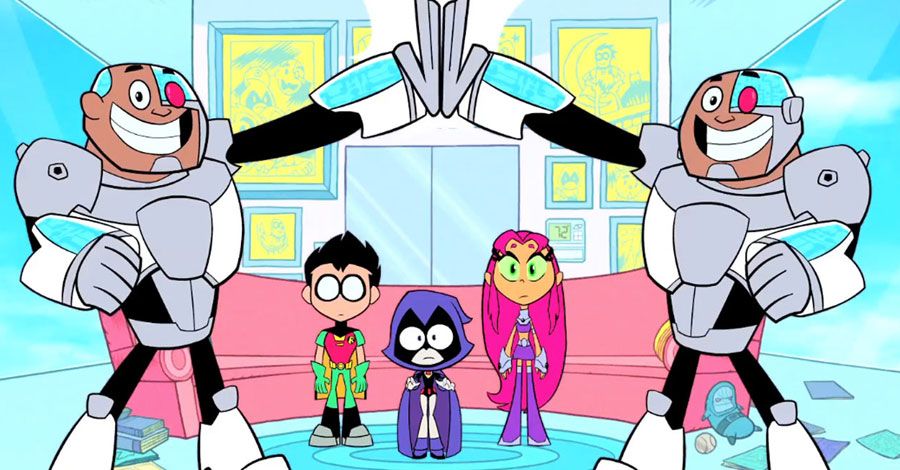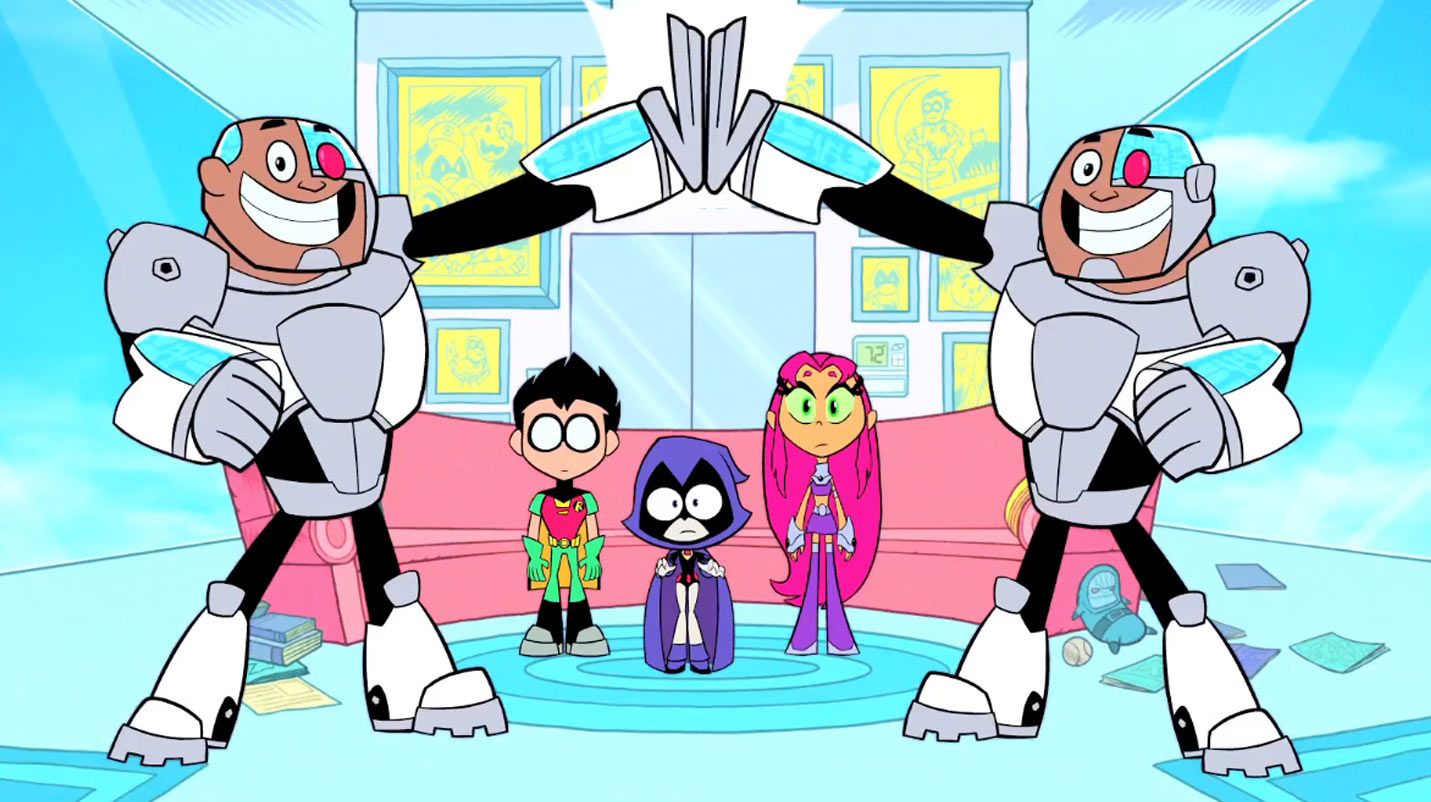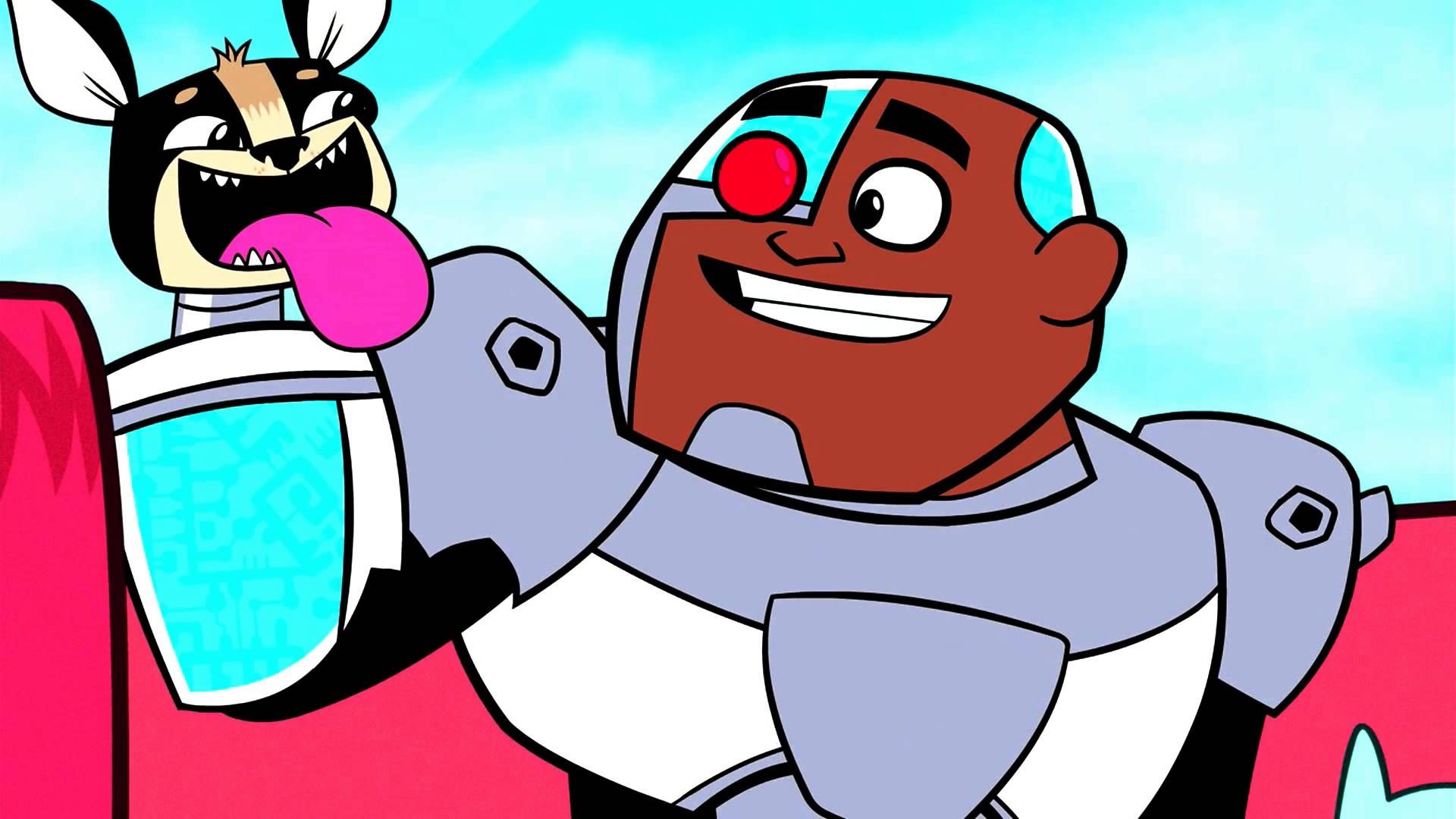Although Cartoon Network's "Teen Titans Go!" benefits from having some of the best writers and producers in animation, none of that would mean much without great actors like Khary Payton, who helped turn the franchise from a serious take on superheroes into one of the cleverest deconstructions of both comic book mythology and sitcoms on television. As Cyborg, Payton not only survived the transition from action/drama to slapstick humor, but helped make audiences fall in love with the switch, bringing his boisterous energy to the show every episode.
Following an appearance at the "Teen Titans Go!" panel at WonderCon, Payton sat down for a fun chat with Comic Book Resources, where we spoke about the process of moving more fully into what he calls the "silly sandbox." Additionally, the industry veteran discussed the challenges and freedoms of voice acting and live-action performance, reflecting on the great environment the show fosters by enabling its core cast to interact and work with one another, a relative rarity in the world of animation.
CBR News: When I was talking to Aaron Horvath about the idea that "Teen Titans Go!" has no continuity, does that affect you at all? Would it be easier or less so if there was a sense of continuity with the character?
Khary Payton: No, no. Continuity doesn't bother me, having it or not having it, as long as you're able to be creative in the process. And this is a very creative process, so there's so many different ways to express yourself in the show. It's usually just the five of us. We have guests come in to do voices sometimes but a lot of times it's just us. I'm doing different voices. They write songs, and we make up tunes bits on the fly, just throwing stuff in and out of there. There's so much creative juice going on. That's the kind of the beauty of this show versus, like, the overriding story arcs that kind of really pulled you into the old show. This really is, what are they going to do next? How far are they going to go? It's a yo-yo, because no matter how far it goes, it pulls back for another 11 minutes later on.
Having to make the transition from a serious tone to this one, when do you feel like you hit your wheelhouse and know this character and can go in and perform in exactly the right way that this show demands?
It's funny, because I don't see a huge difference between the old character and the new character; it's just that this guy is all silly all the time. The other show, it would play in that silly sandbox, but then it would get very serious for the most part. This one, we just kind of stay in the sandbox. But I don't feel at the end of the day it's any different, character-wise. Cyborg was my first voice over audition. I was literally just being me, just big and loud -- and I am big, and when I'm having a good time, I'm big and loud. So it's kind of like saying, well, Khary, are you really you when you're serious, or when you're silly? But it's all me! It's just this particular show, we're really just kind of pushing the envelope of what silly is.
I think there were a couple of weeks, maybe four episodes, I guess, that I was like, okay -- how far is this going? How crazy is this? But I got used to that a couple of weeks in. Then, we kind of looked at each other and we said, we can just go for broke, and an actor loves that. They really do give us the freedom just to kind of go where we want to go. If they're like, "Nah, guys. We really need to do this part this way," they'll always pull us back. But they give us such free rein to play. It's a great muscle to be able to flex.
Generally speaking, is it harder to play in that silly sandbox or in a more serious vein?
Well, with Cyborg -- he's so much kind of a part of me that doing Cyborg in any instance feels easy for me; it feels very at home to me. When I'm putting on a different character, I have to think about more about, okay -- would that particular character react this way or not, when I'm really playing someone who's a little further from myself. But when it comes to Cyborg, it really doesn't feel harder or more difficult or easier, it all feels very natural. So as far as Cyborg is concerned, that's the easy part.
The part that's harder is when I'm playing a very different character, maybe like Aqualad from "Young Justice," and it's like, okay, I can't just be me in this instance. That's not the kind of person he is. So I have to pull myself back; I have to give myself those boundaries. And sometimes, I have to create the boundaries, because for a particular instance, I've never had a moment to think about it. So, yeah, as far as Cyborg is concerned, I really don't feel one is harder or easier than the other. They all feel at home.
At what point did you feel like you were able to step away from sort of larger mythology to just pay attention to what you're doing, to not have to even think about anything outside of what this show's doing?
That's very easy to turn on and off, actually. There was another version of Cyborg that I was playing, maybe a year ago, and the story and the situation dictates your feeling and your mood. If the writing is good, it's going to dictate which way you feel and the way that you react and the way that you create the character at that particular moment. I'm kind of led by the writing in that sense. I wish I had another answer for you, but it really does, in this instance, feel very easy jumping on and jumping off. Cyborg's had a lot of angst sometimes, and "Teen Titans" goes very silly, but if you go back to the comics, when you deal with how he became what he is, that's really horrific. He's very intense. When those aspects are presented to you, it's very easy to kind of turn the key. The writing definitely moves me in the right direction, I'd say.
Is there an aspect of the mythology that they have created for this series that you thought was most interesting? Were you like, "Oh, I might like to explore that a little bit more?"
No, because it's not about mythology in the show. It's more about the camaraderie and about how those personalities, when put in an over-the-top situation, how they go over the top. I say, whatever kind of acid trip they end up going on, you know, it's like these characters are on some crazy, mind-bending drug or whatever, and then you wake up from a dream and it's like you start back over again. But honestly, in this particular sense, backstory and mythology don't concern me as much as how I'm relating to the other four people on the show, which is why it's so important that we all record at the same time. We almost always record all five of us, and I feel like you can -- I feel a difference when we're not all in the room.



